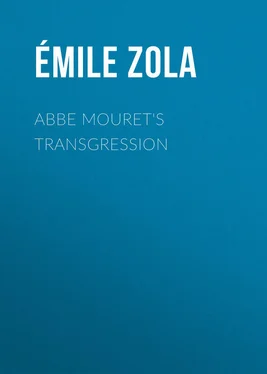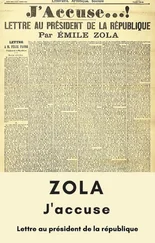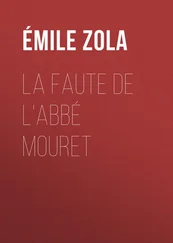Émile Zola - Abbe Mouret's Transgression
Здесь есть возможность читать онлайн «Émile Zola - Abbe Mouret's Transgression» — ознакомительный отрывок электронной книги совершенно бесплатно, а после прочтения отрывка купить полную версию. В некоторых случаях можно слушать аудио, скачать через торрент в формате fb2 и присутствует краткое содержание. Жанр: literature_19, foreign_antique, foreign_prose, на английском языке. Описание произведения, (предисловие) а так же отзывы посетителей доступны на портале библиотеки ЛибКат.
- Название:Abbe Mouret's Transgression
- Автор:
- Жанр:
- Год:неизвестен
- ISBN:нет данных
- Рейтинг книги:5 / 5. Голосов: 1
-
Избранное:Добавить в избранное
- Отзывы:
-
Ваша оценка:
- 100
- 1
- 2
- 3
- 4
- 5
Abbe Mouret's Transgression: краткое содержание, описание и аннотация
Предлагаем к чтению аннотацию, описание, краткое содержание или предисловие (зависит от того, что написал сам автор книги «Abbe Mouret's Transgression»). Если вы не нашли необходимую информацию о книге — напишите в комментариях, мы постараемся отыскать её.
Abbe Mouret's Transgression — читать онлайн ознакомительный отрывок
Ниже представлен текст книги, разбитый по страницам. Система сохранения места последней прочитанной страницы, позволяет с удобством читать онлайн бесплатно книгу «Abbe Mouret's Transgression», без необходимости каждый раз заново искать на чём Вы остановились. Поставьте закладку, и сможете в любой момент перейти на страницу, на которой закончили чтение.
Интервал:
Закладка:
‘Oh! at once! as soon as the others are agreeable,’ said the old woman, alarmed about her periodical presents. ‘What do you say, Brichet? we are not such bad Christians as to go against his reverence?’
Fortune sniggered.
‘Oh, I’m quite ready,’ he said, ‘and so is Rosalie. I saw her yesterday at the back of the mill. We haven’t quarrelled. We stopped there to have a bit of a laugh.’
But Abbe Mouret interrupted him: ‘Very well, I am now going to speak to Bambousse. He is over there, at Les Olivettes, I believe.’
The priest was going off when the mother asked him what had become of her younger son Vincent, who had left in the early morning to serve mass. There was a lad now who badly needed his reverence’s admonitions. And she walked by the priest’s side for another hundred yards, bemoaning her poverty, the failure of the potato crop, the frost which had nipped the olive trees, the hot weather which threatened to scorch up the scanty corn. Then, as she left him, she solemnly declared that her son Fortune always said his prayers, both morning and evening.
Voriau now ran on in front, and suddenly, at a turn in the road, he bolted across the fields. The priest then struck into a small path leading up a low hill. He was now at Les Olivettes, the most fertile spot in the neighbourhood, where the mayor of the commune, Artaud, otherwise Bambousse, owned several fields of corn, olive plantations, and vines. The dog was now romping round the skirts of a tall brunette, who burst into a loud laugh as she caught sight of the priest.
‘Is your father here, Rosalie?’ the latter asked.
‘Yes, just across there,’ she said, pointing with her hand and still smiling.
Leaving the part of the field she had been weeding, she walked on before him with the vigorous springiness of a hard-working woman, her head unshielded from the sun, her neck all sunburnt, her hair black and coarse like a horse’s mane. Her green-stained hands exhaled the odour of the weeds she had been pulling up.
‘Father,’ she called out, ‘here’s Monsieur le Cure asking for you.’
And there she remained, bold, unblushing, with a sly smile still hovering over her features. Bambousse, a stout, sweating, round-faced man, left his work and gaily came towards the priest.
‘I’d take my oath you are going to speak to me about the repairs of the church,’ he exclaimed, as he clapped his earthy hands. ‘Well, then, Monsieur le Cure, I can only say no, it’s impossible. The commune hasn’t got the coin. If the Lord provides plaster and tiles, we’ll provide the workmen.’
At this jest of his the unbelieving peasant burst into a loud guffaw, slapped his thighs, coughed, and almost choked himself.
‘It was not for the church I came,’ replied the Abbe Mouret. ‘I wanted to speak to you about your daughter Rosalie.’
‘Rosalie? What has she done to you, then?’ inquired Bambousse, his eyes blinking.
The girl was boldly staring at the young priest, scrutinising his white hands and slender, feminine neck, as if trying to make him redden. He, however, bluntly and with unruffled countenance, as if speaking of something quite indifferent, continued:
‘You know what I mean, Bambousse. She must get married.’
‘Oh, that’s it, is it?’ muttered the old man, with a bantering look. ‘Many thanks for the message. The Brichets sent you, didn’t they? Mother Brichet goes to mass, and so you give her a helping hand to marry her son – it’s all very fine. But, I’ve got nothing to do with that. It doesn’t suit me. That’s all.’
Thereupon the astonished priest represented to him that the scandal must be stopped, and that he ought to forgive Fortune, as the latter was willing to make reparation for his transgression, and that, lastly, his daughter’s reputation demanded a speedy marriage.
‘Ta, ta, ta,’ replied Bambousse, what a lot of words! I shall keep my daughter, please understand it. All that’s got nothing to do with me. That Fortune is a beggarly pauper, without a brass farthing. What an easy job, if one could marry a girl like that! At that rate we should have all the young things marrying off morning and night. Thank Heaven! I’m not worried about Rosalie: everybody knows what has happened; but it makes no difference. She can marry any one she chooses in the neighbourhood.’
‘But the child?’ interrupted the priest.
‘The child indeed! There’ll be time enough to think of that when it’s born.’
Rosalie, perceiving the turn the priest’s application was taking, now thought it proper to ram her fists into her eyes and whimper. And she even let herself fall upon the ground.
‘Shut up, will you, you hussy!’ howled her father in a rage. And he proceeded to revile her in the coarsest terms, which made her laugh silently behind her clenched fists.
‘You won’t shut up? won’t you? Just wait a minute then, you jade!’ continued old Bambousse. And thereupon he picked up a clod of earth and flung it at her. It burst upon her knot of hair, crumbling down her neck and smothering her in dust. Dizzy from the blow, she bounded to her feet and fled, sheltering her head between her hands. But Bambousse had time to fling two more clods at her, and if the first only grazed her left shoulder, the next caught her full on the base of the spine, with such force that she fell upon her knees.
‘Bambousse!’ cried the priest, as he wrenched from the peasant’s hand a number of stones which he had just picked up.
‘Let be, Monsieur le Cure,’ said the other. ‘It was only soft earth. I ought to have thrown these stones at her. It’s easy to see that you don’t know girls. Hard as nails, all of them. I might duck that one in the well, I might break all her bones with a cudgel, and she’d still be just the same. But I’ve got my eye on her, and if I catch her!.. Ah! well, they are all like that.’
He was already comforted. He took a good pull at a big flat bottle of wine, encased in wicker-work, which lay warming on the hot ground. And breaking once more into a laugh, he said: ‘If I only had a glass, Monsieur le Cure, I would offer you some with pleasure.’
‘So then,’ again asked the priest, ‘this marriage?’
‘No, it can’t be; I should get laughed at. Rosalie is a stout wench. She’s worth a man to me. I shall have to hire a lad the day she goes off… We can have another talk about it after the vintage. Besides, I don’t want to be robbed. Give and take, say I. That’s fair. What do you think?’
Nevertheless for another long half-hour did the priest remain there preaching to Bambousse, speaking to him of God, and plying him with all the reasons suited to the circumstances. But the old man had resumed his work; he shrugged his shoulders, jested, and grew more and more obstinate. At last, he broke out: ‘But if you asked me for a sack of corn, you would give me money, wouldn’t you? So why do you want me to let my daughter go for nothing?’
Much discomfited, Abbe Mouret left him. As he went down the path he saw Rosalie rolling about under an olive tree with Voriau, who was licking her face. With her arms whirling, she kept on repeating: ‘You tickle me, you big stupid. Leave off!’
When she perceived the priest, she made an attempt at a blush, settled her clothes, and once more raised her fists to her eyes. He, on his part, sought to console her by promising to attempt some fresh efforts with her father, adding that, in the meantime, she should do nothing to aggravate her sin. And then, as she impudently smiled at him, he pictured hell, where wicked women burn in torment. And afterwards he left her, his duty done, his soul once more full of the serenity which enabled him to pass undisturbed athwart the corruptions of the world.
VII
Интервал:
Закладка:
Похожие книги на «Abbe Mouret's Transgression»
Представляем Вашему вниманию похожие книги на «Abbe Mouret's Transgression» списком для выбора. Мы отобрали схожую по названию и смыслу литературу в надежде предоставить читателям больше вариантов отыскать новые, интересные, ещё непрочитанные произведения.
Обсуждение, отзывы о книге «Abbe Mouret's Transgression» и просто собственные мнения читателей. Оставьте ваши комментарии, напишите, что Вы думаете о произведении, его смысле или главных героях. Укажите что конкретно понравилось, а что нет, и почему Вы так считаете.












